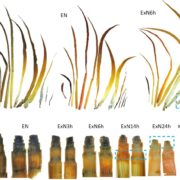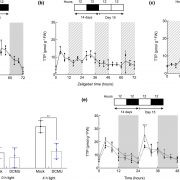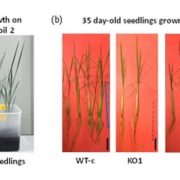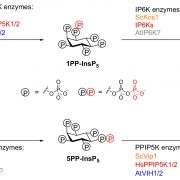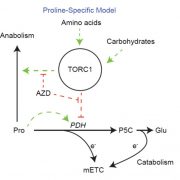Natural Herbicide: Cyanobacterial antimetabolite inhibits the growth of prototrophic organisms (Nature Comms)
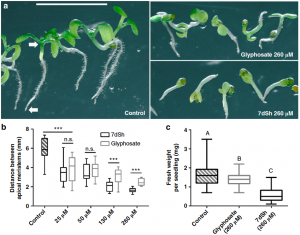 The shikimate pathway synthesizes aromatic amino acids in microorganisms and plants, and its absence in animals makes the shikimate pathway a common target for the development of herbicides. Brilisauer et al. 2019 isolated a novel compound from the cyanobacterium Synechococcus elongatus—7-deoxy-sedoheptulose (7dSH)—that blocks 3-deoxy-D-arabino-heptulosonate 7-phospate (DAHP) from binding to 3-dehydroquinate (DHQ) synthase, a key step in the shikimate pathway. Treatment of Anabaena variabilis (a cyanobacterium), Saccharomyces cerevisiae, and Arabidopsis thaliana with 7dSH inhibited their growth, and in the case of Arabidopsis was more potent than equivalent treatment with glyphosate. This study broadens our understanding of cyanobacterial defense and identifies a compound with the potential for future agricultural application. (Summary by Nathan Scinto-Madonich) Nature Comms 10.1038/s41467-019-08476-8
The shikimate pathway synthesizes aromatic amino acids in microorganisms and plants, and its absence in animals makes the shikimate pathway a common target for the development of herbicides. Brilisauer et al. 2019 isolated a novel compound from the cyanobacterium Synechococcus elongatus—7-deoxy-sedoheptulose (7dSH)—that blocks 3-deoxy-D-arabino-heptulosonate 7-phospate (DAHP) from binding to 3-dehydroquinate (DHQ) synthase, a key step in the shikimate pathway. Treatment of Anabaena variabilis (a cyanobacterium), Saccharomyces cerevisiae, and Arabidopsis thaliana with 7dSH inhibited their growth, and in the case of Arabidopsis was more potent than equivalent treatment with glyphosate. This study broadens our understanding of cyanobacterial defense and identifies a compound with the potential for future agricultural application. (Summary by Nathan Scinto-Madonich) Nature Comms 10.1038/s41467-019-08476-8


